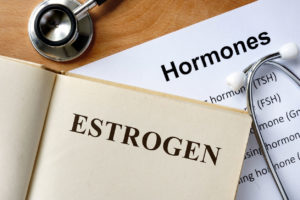Hormones play a variety of roles in the body, but their primary function is as chemical messengers that control bodily functions. Some hormone-producing glands are more complex than others; and while men and women share many of the same hormones, there are some that are gender-specific.
Hormone-Producing Systems
Certain glands in the body are responsible for dispatching hormones, and these message-sending glands are part of the endocrine system. Different glands dispatch different chemical messages, all of which are integral to a healthy body.
A healthy endocrine system is optimal for the body’s good health. If the endocrine system is unhealthy, it will have a negative effect on how the body develops and works. For example, faulty chemical signals sent during puberty will affect development.
Primary Glands that Produce Hormones
Pituitary
The pituitary gland creates growth hormones and controls aspects of other hormones produced by other glands. It’s a key gland in the endocrine system in its regulation of metabolism, blood pressure, milk production, and various reproductive functions.
Thymus
The thymus produces the thymosin hormone, which stimulates the development of T-cells when a person is young – before puberty. The thymus transforms white blood cells into these immune-enforcing T-cells. After puberty, the thymus basically becomes a lump of fatty tissue. However, these T-cells continue to support your body’s immune function throughout your lifetime.
Ovaries
Ovaries are gender-specific and secrete female sex hormones into a woman’s body: estrogen and progesterone. The hormones secreted by the ovaries assist in the proper development of the female body and help foster fertility.
Testes
Testes are gender-specific to men and produce the hormone testosterone. Testosterone helps foster male development in growing boys, and it contributes to healthy libido, strong muscles, and dense bones.
Hypothalamus
The hypothalamus is critical in maintaining the stability of all functions throughout the body – this stability is called homeostasis. It is the link between the endocrine system and the central nervous system. The hypothalamus is also responsible for balancing the hormones from other glands, and it regulates functions including body temperature, sleep, heart rate, blood pressure, and hunger, thirst.
Thyroid
The thyroid gland, located in the neck, is often associated with weight loss and weight gain because it determines your metabolism. The secretion of the thyroid hormone regulates a person’s metabolic rate. The thyroid gland is controlled by the pituitary gland and the hypothalamus.
Parathyroid
The parathyroid is located around the thyroid as four little rice-size glands. The primary function of the parathyroid hormone is to regulate the body’s calcium levels.
Pineal
The pineal gland secretes the hormone melatonin from its location in the center of the brain. Melatonin helps to regulate sleep patterns, maintain a person’s circadian rhythm, and regulate hormones involving reproduction.
Adrenal
The adrenal gland produces the hormones cortisol, aldosterone, and adrenaline. The adrenal gland is a set of two organs that are located above each of the kidneys. This gland is responsible for producing hormones that assist with regulating blood sugar, blood pressure, and metabolism. They also help react to stress brought on by illness, injury, or pressure via adrenaline.
Pancreas
The pancreas regulates blood sugar (glucose) and salt by releasing the hormone insulin. An imbalance of blood sugar can result in diabetes and other health issues. The pancreas is part of both the endocrine and the digestive systems, but primarily digestive. This gland is located just above the stomach in the upper left quadrant of the abdomen.
Who Can Help With My Hormonal Imbalance Issues?
It is essential that your glands perform correctly, or your health will be negatively affected. If your body is showing signs that a gland is not working properly – such as if you’ve gained weight or lost weight, or your blood pressure is too low or too high, etc. – call the Advanced Medical Clinic today at (561) 434-1935 or fill out our simple online appointment request form to discuss your concerns with our caring professionals.
Following a diagnosis, a plan will be put in place to address the symptoms you’ve been experiencing, and we can help you get on the road to recovery so you can enjoy life again. We look forward to hearing from you.


